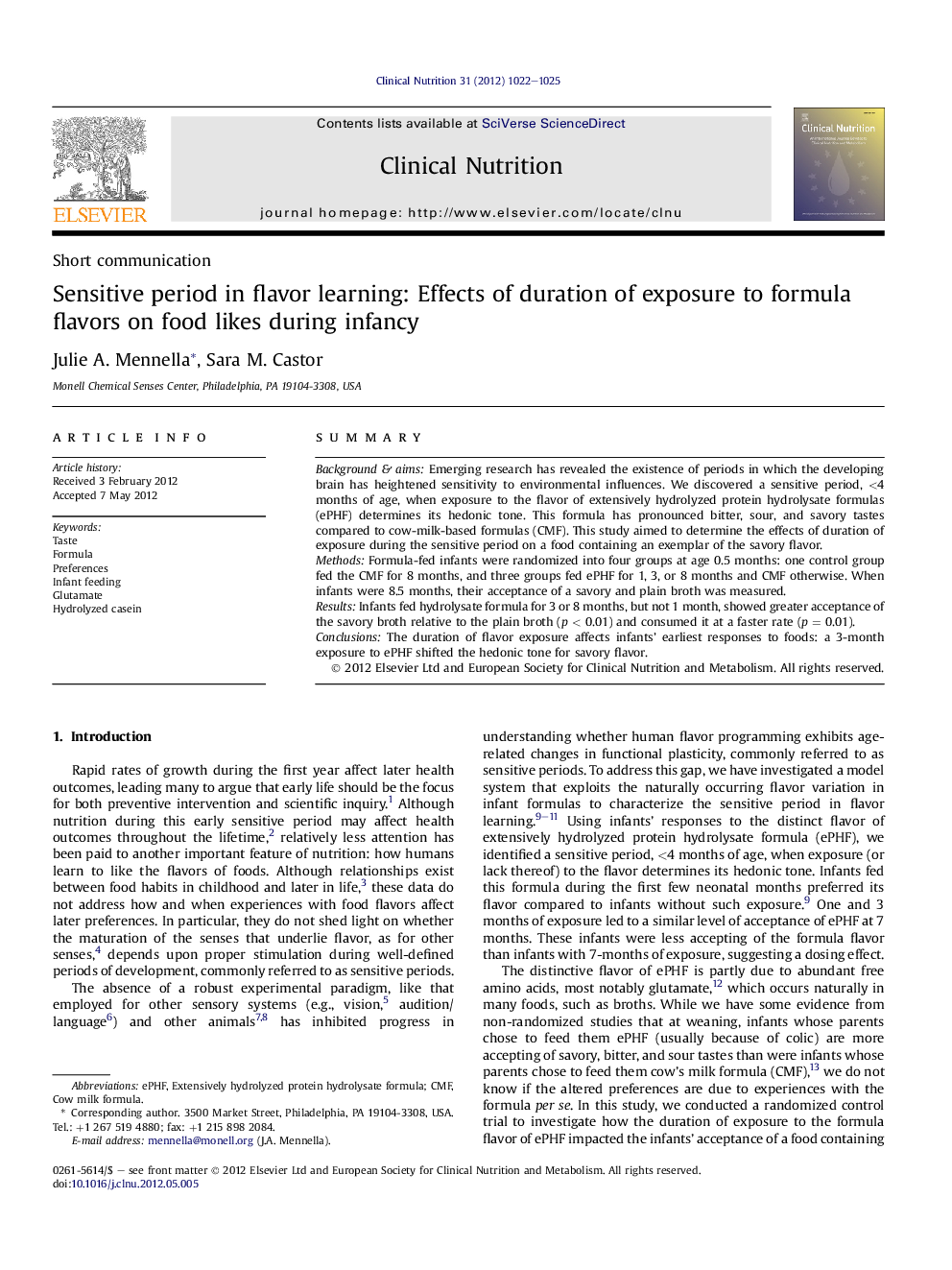| Article ID | Journal | Published Year | Pages | File Type |
|---|---|---|---|---|
| 2683040 | Clinical Nutrition | 2012 | 4 Pages |
SummaryBackground & aimsEmerging research has revealed the existence of periods in which the developing brain has heightened sensitivity to environmental influences. We discovered a sensitive period, <4 months of age, when exposure to the flavor of extensively hydrolyzed protein hydrolysate formulas (ePHF) determines its hedonic tone. This formula has pronounced bitter, sour, and savory tastes compared to cow-milk-based formulas (CMF). This study aimed to determine the effects of duration of exposure during the sensitive period on a food containing an exemplar of the savory flavor.MethodsFormula-fed infants were randomized into four groups at age 0.5 months: one control group fed the CMF for 8 months, and three groups fed ePHF for 1, 3, or 8 months and CMF otherwise. When infants were 8.5 months, their acceptance of a savory and plain broth was measured.ResultsInfants fed hydrolysate formula for 3 or 8 months, but not 1 month, showed greater acceptance of the savory broth relative to the plain broth (p < 0.01) and consumed it at a faster rate (p = 0.01).ConclusionsThe duration of flavor exposure affects infants' earliest responses to foods: a 3-month exposure to ePHF shifted the hedonic tone for savory flavor.
